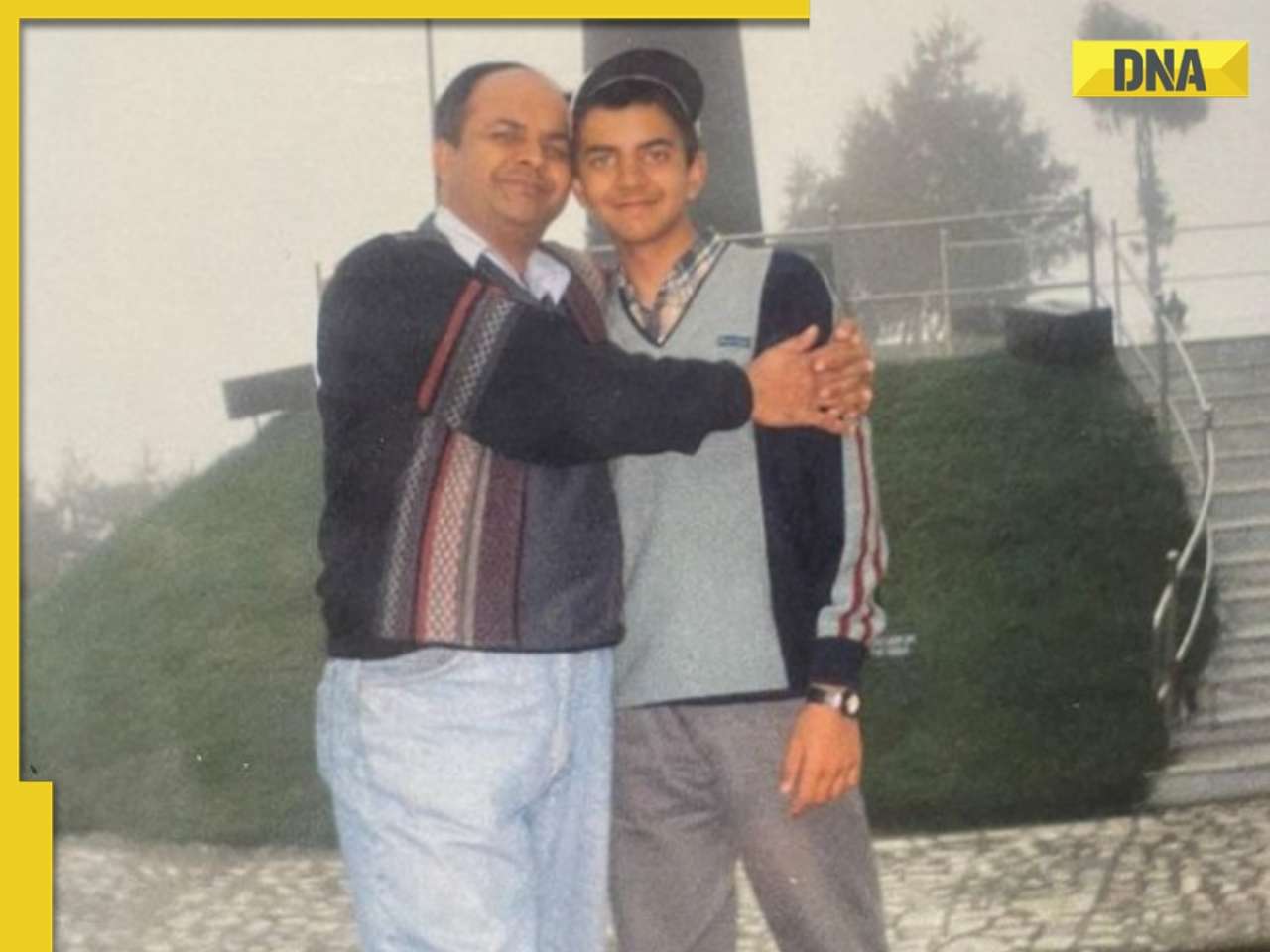Al-Qaeda is desperate to attack the West five years after its last successful strike, using simpler methods than the kind of complex, team-based operations of September 11, 2001.
Plotters in Yemen conceal bombs inside office equipment and mail the packaged items air freight to America. Only a tipoff alerts authorities that planes are en route with a deadly cargo.
A European scare erupts when militants from Germany are reported to be plotting attacks from hideouts in Pakistan. Most subsequently turn out to be incompetent fantasists.
Which conspiracy poses the greater threat?
The answer may not be that simple.
In the space of one month the West has faced both starkly divergent scenarios, underlining the complexity of the challenge for counter-terrorism agencies seeking to identify threats, assessing their menace and formulate an effective response.
Al-Qaeda is desperate to attack the West five years after its last successful strike, using simpler methods than the kind of complex, team-based operations of September 11, 2001.
But forging a common response is difficult, for there is no unanimity among Western experts on whether the diverse tactics it is using, and the emergence of inept novices in its ranks, amount to signs of weakness, or of adaptability.
Bruce Hoffman, a counter-terrorism expert and director of Georgetown University's security studies program, sees no evidence that al-Qaeda's energies are fading despite punishing drone attacks on its leaders in the Afghan-Pakistan border area.
"I don't think it's either ebbing or necessarily in retreat," said, pointing to the growth of a globally scattered network of like-minded groups in places like Yemen and Somalia.
Al-Qaeda's Yemen network, al-Qaeda in the Arabian Peninsula (AQAP), is the top suspect in a global security alert triggered by the discovery of explosives on two cargo planes bound for the United States.
Fawaz Gerges, Professor of Middle Eastern Politics and International Relations at the London School of Economics, said AQAP had the same kind of drive, focus and seasoned leadership as an earlier generation of militants who staged al-Qaeda's most prominent attacks including 911.
"Their clear message is an intense determination to strike any target, use any method to get at the West," he said.
In contrast, veteran researcher Marc Sageman sees al-Qaeda's senior generation "fading away" under pressure from drones, now so bereft of experienced lieutenants that it is forced to use hopefuls who come out to Pakistan to volunteer for duty.
He points to the community of militants in Europe that was at the centre of a European security scare in early October.
The group of 11 radicals left Germany in March 2009 to fight against the United States and coalition forces in Afghanistan.
A group member held by US troops in Afghanistan in July 2010 revealed details of planned attacks on targets in Europe, possibly involving simultaneous gun raids in European cities.
To date, the group's performance has been unimpressive.
Of the 11, only eight ever made it to Pakistan. Two, including the ringleader, a Frenchman of Algerian origin, Naamen Meziche, are believed to have been killed in a drone attack.
The others are variously detained in Afghanistan, detained in Germany, living at liberty but under surveillance by the authorities in Germany, or have disappeared from view.
"These are very amateurish groups lacking the sophistication, skills and training of the previous generation that we saw at work in 911," Gerges said.
"This trend of homegrown militants is alarming and given the number of plots, an attack might get though. But we need to be precise about the nature of the threats: Can al-Qaeda carry out spectacular earth-shaking operations any more? No, it can't."
The plot, reportedly hatched in militant hideouts in Pakistan's North Waziristan region, did not appear to have gone beyond brainstorming, security experts say, although there may be other strands of this conspiracy that continue to unfold.
"They lived in a dreamland, dreaming of jihad," a European intelligence source said of the group.
"They travelled to Pakistan with pink-tinted sunglasses, so to speak, looking at a wonderful world. When they arrived in Waziristan they met reality. They had to travel about the mountains, and two of the guys were overweight. It was very strenuous. There were no showers, no meat on the table."
The group's lack of toughness and guile are typical of other radicals who headed to Pakistan from Europe, experts say.
But there is no room for complacency, for when novices rub shoulders with seasoned veterans, they can learn deadly skills.
There have been reports that some of the Hamburg group met Ilyas Kashmiri, a veteran Pakistani Islamist radical.
Another contact for European militants is Adnan al-Shukrijumah, an experienced Saudi-born Guyanese al-Qaeda operative.
And there are unconfirmed reports that Saif al-Adel, an experienced former al-Qaeda security chief, has resurfaced in northwest Pakistan after years of house arrest in Iran.
![submenu-img]() Anant Raj Ventures into tier 2 and tier 3 cities, pioneering growth in India’s real estate sector
Anant Raj Ventures into tier 2 and tier 3 cities, pioneering growth in India’s real estate sector![submenu-img]() Sophie Turner reveals she wanted to terminate her first pregnancy with Joe Jonas: 'Didn't know if I wanted...'
Sophie Turner reveals she wanted to terminate her first pregnancy with Joe Jonas: 'Didn't know if I wanted...'![submenu-img]() Meet outsider who was given no money for first film, battled depression, now charges Rs 20 crore per film
Meet outsider who was given no money for first film, battled depression, now charges Rs 20 crore per film![submenu-img]() This is owner of most land in India, owns land in every state, total value is Rs...
This is owner of most land in India, owns land in every state, total value is Rs...![submenu-img]() Meet man who built Rs 39832 crore company after quitting high-paying job, his net worth is..
Meet man who built Rs 39832 crore company after quitting high-paying job, his net worth is..![submenu-img]() Meet woman who first worked at TCS, then left SBI job, cracked UPSC exam with AIR...
Meet woman who first worked at TCS, then left SBI job, cracked UPSC exam with AIR...![submenu-img]() Meet engineer, IIT grad who left lucrative job to crack UPSC in 1st attempt, became IAS, married to an IAS, got AIR...
Meet engineer, IIT grad who left lucrative job to crack UPSC in 1st attempt, became IAS, married to an IAS, got AIR...![submenu-img]() Meet Indian woman who after completing engineering directly got job at Amazon, then Google, Microsoft by using just...
Meet Indian woman who after completing engineering directly got job at Amazon, then Google, Microsoft by using just...![submenu-img]() Meet man who is 47, aspires to crack UPSC, has taken 73 Prelims, 43 Mains, Vikas Divyakirti is his...
Meet man who is 47, aspires to crack UPSC, has taken 73 Prelims, 43 Mains, Vikas Divyakirti is his...![submenu-img]() IIT graduate gets job with Rs 100 crore salary package, fired within a year, he is now working as…
IIT graduate gets job with Rs 100 crore salary package, fired within a year, he is now working as…![submenu-img]() DNA Verified: Is CAA an anti-Muslim law? Centre terms news report as 'misleading'
DNA Verified: Is CAA an anti-Muslim law? Centre terms news report as 'misleading'![submenu-img]() DNA Verified: Lok Sabha Elections 2024 to be held on April 19? Know truth behind viral message
DNA Verified: Lok Sabha Elections 2024 to be held on April 19? Know truth behind viral message![submenu-img]() DNA Verified: Modi govt giving students free laptops under 'One Student One Laptop' scheme? Know truth here
DNA Verified: Modi govt giving students free laptops under 'One Student One Laptop' scheme? Know truth here![submenu-img]() DNA Verified: Shah Rukh Khan denies reports of his role in release of India's naval officers from Qatar
DNA Verified: Shah Rukh Khan denies reports of his role in release of India's naval officers from Qatar![submenu-img]() DNA Verified: Is govt providing Rs 1.6 lakh benefit to girls under PM Ladli Laxmi Yojana? Know truth
DNA Verified: Is govt providing Rs 1.6 lakh benefit to girls under PM Ladli Laxmi Yojana? Know truth![submenu-img]() In pics: Taarak Mehta Ka Ooltah Chashmah actress Deepti Sadhwani dazzles in orange at Cannes debut, sets new record
In pics: Taarak Mehta Ka Ooltah Chashmah actress Deepti Sadhwani dazzles in orange at Cannes debut, sets new record![submenu-img]() Ananya Panday stuns in unseen bikini pictures in first post amid breakup reports, fans call it 'Aditya Roy Kapur's loss'
Ananya Panday stuns in unseen bikini pictures in first post amid breakup reports, fans call it 'Aditya Roy Kapur's loss'![submenu-img]() Remember Harsh Lunia? Just Mohabbat child star, here's how former actor looks now, his wife is Bollywood's popular...
Remember Harsh Lunia? Just Mohabbat child star, here's how former actor looks now, his wife is Bollywood's popular...![submenu-img]() Mother's Day 2024: Bollywood supermoms who balance motherhood, acting, and run multi-crore businesses
Mother's Day 2024: Bollywood supermoms who balance motherhood, acting, and run multi-crore businesses![submenu-img]() Rocky Aur Rani's Golu aka Anjali Anand shocks fans with drastic weight loss without gym, says fitness secret is...
Rocky Aur Rani's Golu aka Anjali Anand shocks fans with drastic weight loss without gym, says fitness secret is...![submenu-img]() Haryana Political Crisis: Will 3 independent MLAs support withdrawal impact the present Nayab Saini led-BJP government?
Haryana Political Crisis: Will 3 independent MLAs support withdrawal impact the present Nayab Saini led-BJP government?![submenu-img]() DNA Explainer: Why Harvey Weinstein's rape conviction was overturned, will beleaguered Hollywood mogul get out of jail?
DNA Explainer: Why Harvey Weinstein's rape conviction was overturned, will beleaguered Hollywood mogul get out of jail?![submenu-img]() What is inheritance tax?
What is inheritance tax?![submenu-img]() DNA Explainer: What is cloud seeding which is blamed for wreaking havoc in Dubai?
DNA Explainer: What is cloud seeding which is blamed for wreaking havoc in Dubai?![submenu-img]() DNA Explainer: What is Israel's Arrow-3 defence system used to intercept Iran's missile attack?
DNA Explainer: What is Israel's Arrow-3 defence system used to intercept Iran's missile attack?![submenu-img]() Sophie Turner reveals she wanted to terminate her first pregnancy with Joe Jonas: 'Didn't know if I wanted...'
Sophie Turner reveals she wanted to terminate her first pregnancy with Joe Jonas: 'Didn't know if I wanted...'![submenu-img]() Meet outsider who was given no money for first film, battled depression, now charges Rs 20 crore per film
Meet outsider who was given no money for first film, battled depression, now charges Rs 20 crore per film![submenu-img]() Meet actress who quit high-paying job for films, director replaced her with star kid, had no money, now lives in...
Meet actress who quit high-paying job for films, director replaced her with star kid, had no money, now lives in...![submenu-img]() This star kid's last 3 films lost Rs 5000000000 at box office, has no solo hit in 5 years, now has lost four films to...
This star kid's last 3 films lost Rs 5000000000 at box office, has no solo hit in 5 years, now has lost four films to...![submenu-img]() Meet actress viral for just walking on screen, belongs to royal family, has no solo hit in 15 years, but still is…
Meet actress viral for just walking on screen, belongs to royal family, has no solo hit in 15 years, but still is…![submenu-img]() This is owner of most land in India, owns land in every state, total value is Rs...
This is owner of most land in India, owns land in every state, total value is Rs...![submenu-img]() Blinkit now gives free dhaniya with veggie orders, thanks to Mumbai mom
Blinkit now gives free dhaniya with veggie orders, thanks to Mumbai mom![submenu-img]() Meet man, an Indian who entered NASA's Hall of Fame by hacking, earlier worked on Apple's...
Meet man, an Indian who entered NASA's Hall of Fame by hacking, earlier worked on Apple's...![submenu-img]() 14 majestic lions cross highway in Gujarat's Amreli, video goes viral
14 majestic lions cross highway in Gujarat's Amreli, video goes viral![submenu-img]() Here's why Isha Ambani was not present during Met Gala 2024 red carpet
Here's why Isha Ambani was not present during Met Gala 2024 red carpet























































)
)
)
)
)
)